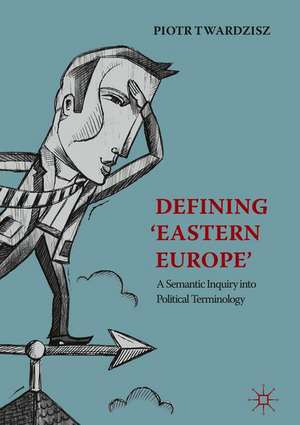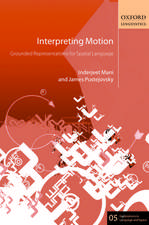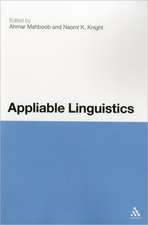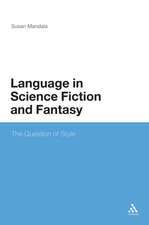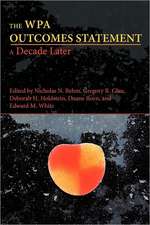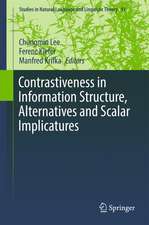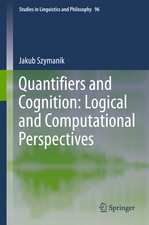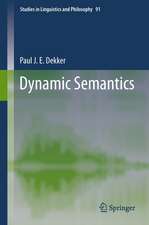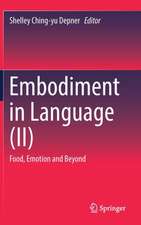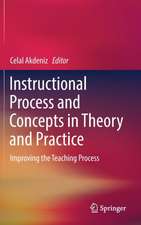Defining ‘Eastern Europe’: A Semantic Inquiry into Political Terminology
Autor Piotr Twardziszen Limba Engleză Hardback – 7 mai 2018
| Toate formatele și edițiile | Preț | Express |
|---|---|---|
| Paperback (1) | 581.01 lei 6-8 săpt. | |
| Springer International Publishing – 10 ian 2019 | 581.01 lei 6-8 săpt. | |
| Hardback (1) | 586.38 lei 6-8 săpt. | |
| Springer International Publishing – 7 mai 2018 | 586.38 lei 6-8 săpt. |
Preț: 586.38 lei
Preț vechi: 689.86 lei
-15% Nou
Puncte Express: 880
Preț estimativ în valută:
112.24€ • 121.96$ • 94.34£
112.24€ • 121.96$ • 94.34£
Carte tipărită la comandă
Livrare economică 21 aprilie-05 mai
Preluare comenzi: 021 569.72.76
Specificații
ISBN-13: 9783319773735
ISBN-10: 3319773739
Pagini: 259
Ilustrații: XVII, 259 p.
Dimensiuni: 148 x 210 x 22 mm
Greutate: 0.49 kg
Ediția:1st ed. 2018
Editura: Springer International Publishing
Colecția Palgrave Macmillan
Locul publicării:Cham, Switzerland
ISBN-10: 3319773739
Pagini: 259
Ilustrații: XVII, 259 p.
Dimensiuni: 148 x 210 x 22 mm
Greutate: 0.49 kg
Ediția:1st ed. 2018
Editura: Springer International Publishing
Colecția Palgrave Macmillan
Locul publicării:Cham, Switzerland
Cuprins
Chapter 1: Western Perspectives and Vantage Points.- Chapter 2: Historical Events and Developments.- Chapter 3: Problematic Terms and Concepts.- Chapter 4: Dominant Themes and Geographic Components.- Chapter 5: Current Data and Statistics.- Chapter 6: Meanings and Interpretations.- Chapter: 7 Semantic Primes and Definitions.
Recenzii
“The topic is important and interesting, the amount of the author’s work on Eastern and Central Europe is remarkable. Also, the intention to contribute to an understanding of political terminology by providing insights from linguistic semantics is commendable.” (Adam Głaz, Journal of Language and Politics, Vol. 19 (5), 2020)
Notă biografică
Piotr Twardzisz is Associate Professor in the Institute of Applied Linguistics at the University of Warsaw, Poland. His research interests focus on specialist languages, figurative language, word-formation, lexicology and terminology, as well as international affairs. Piotr is author of Zero Derivation in English: A Cognitive Grammar Approach (1997), Patterns of English Word-Formation (2010), The Language of Interstate Relations: In Search of Personification (2013) and numerous articles.
Textul de pe ultima copertă
This book offers a linguistic-semantic analysis of the expression ‘Eastern Europe’ in international English-language media discourse and academic discourse. Interdisciplinary in nature, it provides insights beyond semantics and lexicology, commenting on the politics, history, economy and culture of the region. Its thorough analysis of ‘Eastern Europe’ as a linguistic entity, surrounded and affected by other linguistic entities, allows for a systematic description of the term’s linguistic ‘behaviour’ in specialist written discourse. The author measures the ‘quantity’ and ‘quality’ of ‘Eastern Europe’ in specialist discourse, painting a holistic picture of how it appears in English-language quality texts published in the last twenty-five years. This book will appeal to students and scholars of cognitive linguistics, semantics, lexicology and lexicography, and to specialists working on history, political theory and international relations as they relate to Eastern Europe.
Caracteristici
Delineates meaningful and rigorous definitions of the concepts ‘Eastern Europe’ and ‘Central Europe’ Analyses the term ‘Eastern Europe’ as a Western invention Goes beyond linguistics to discuss the political, historical, economic and cultural concepts that lie behind ‘Eastern Europe’
